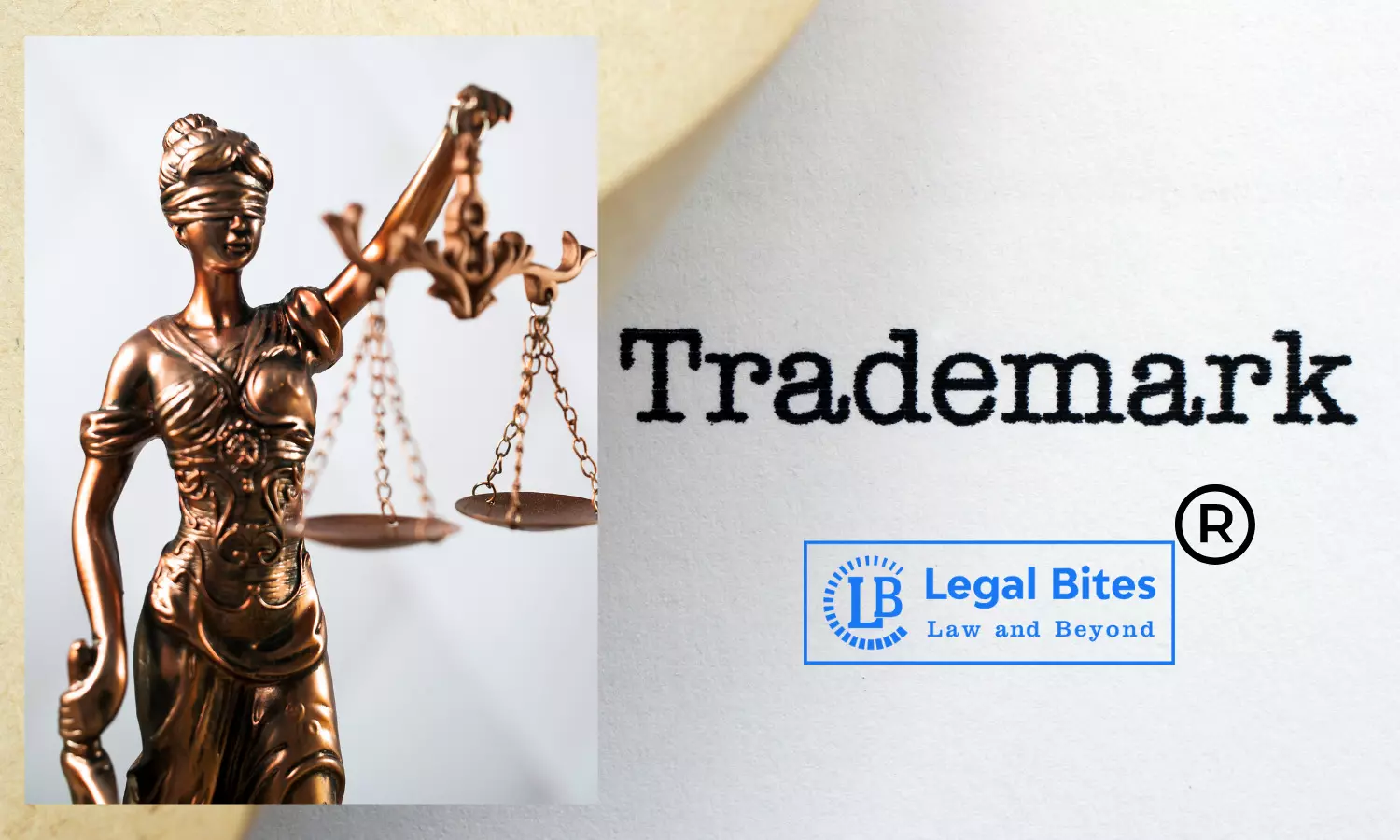Importance of Trademark Registration in India
The article 'Importance of Trademark Registration in India' talks about the necessity and significance of trademark registration specifically in the Indian scenario

The article 'Importance of Trademark Registration in India' talks about the necessity and significance of trademark registration specifically in the Indian scenario. India is a fiercely competitive market for entrepreneurs and business owners, where countless new yet identical brands and items are appearing every day. In this situation, brand protection is required to stop third parties from profiting from your name or brand. Trademark is very crucial in the commercial promotion since...
The article 'Importance of Trademark Registration in India' talks about the necessity and significance of trademark registration specifically in the Indian scenario. India is a fiercely competitive market for entrepreneurs and business owners, where countless new yet identical brands and items are appearing every day. In this situation, brand protection is required to stop third parties from profiting from your name or brand. Trademark is very crucial in the commercial promotion since it communicates information about the product's quality. It permits a business to have exclusive & unique rights to make use of, transfer, or assign a such mark.
What is Trademark?
When early craftsmen etched their autographs or "marks" on their aesthetic or functional objects in ancient times, it was the first time when the trademarks were used. These trademarks have changed over time to become what they are now.
A trademark, as defined by the World Intellectual Property Organization (WIPO), is a sign that has the capacity to distinguish between the goods and services provided by various businesses. Additionally, it may be a brand value. Any type of legal entity, including individuals and businesses, can purchase trademarks.
A trademark can also be described as a name, word, phrase, logo, symbol, design, image, or a combination of these things. A trademark identifies the company that owns the brand for a specific good or service. The Trade Marks Act of 1999, The Trade Marks Rules of 2002, and The Trade Marks (Amendment) Rules of 2017 all control laws in India pertaining to trademark registration.
Types of Trademark
Although there are many different types of trademarks, they all serve the same objective, which is to let consumers recognize products and services coming from a particular manufacturer or service provider. The trademarks are broadly classified into General & Specific marks which further include many types.
1) General Marks: The General marks can be further classified into Generic Marks, Suggestive Marks, Descriptive Marks, Arbitrary Marks, and Fanciful Marks.
2) Specific Marks: Specific Marks on the other hand can be further classified into Service Mark, Certification Marks, Collective Mark, Trade Dress, Trade Names, House Mark, Family of Marks, Sound Mark, Pattern Mark, Position Mark, Hologram Mark, Multimedia Mark, Motion Mark, and Logotype
What is Trademark Registration?
The Trade Marks Act of 1999 establishes a legal process known as trademark registration. You can protect your brand or logo by forbidding others from using it by registering it as a trademark. By registering a trademark, you acquire ownership of the name, brand, and logo. If a business or individual wants to safeguard its logo against third parties misusing it, it must go through the trademark registration procedure in India.
In the event of trademark infringement, trademark registration would grant the legal authority to file a lawsuit against the third party. Additionally, trademark registration grants the owner the sole right to use the mark in connection with their goods or services.
There are two ways to register a trademark: offline or online. Depending on the jurisdiction, a trademark may be registered offline at one of the offices of the trademark registry. E-filing of a trademark is the term used for online registration. Registration can be easily done through the website and you are supposed to provide details such as the type or classes of goods or services for which registration is required, name and location of the proprietor, agent/attorney details, place of trademark registration, etc.
It will be considered only if there are no conflicts regarding the Application and any already registered or pending trademarks. The registered trademark is published in the Trademark Journal when the trademark registrar accepts the application. The journal publishes all of the registered and approved trademarks according to the class. Anyone may oppose the trademark within 90 days if it is harming their brand. They have 90 days following publication to object to the trademark. The mark will be registered within 12 weeks if no objections are made within 90 days of the publication. The decision to accept or reject the trademark will be made after the opposition process is over.
Necessity / Importance of Trademark Registration
A trademark safeguards your reputation and gives you the opportunity to prevent someone from benefiting from your brand. The shape of the goods, their packaging, and a color combination are all examples of trademarks that can set one person's goods or services apart from those of another.
The benefits of Trademark registration are as follows:
1) Unique Rights: A registered trademark is under the sole control of its owner. For all other goods falling under the class(es) listed in the application, the owner may use the same trademark.
2) Establish Trust & Loyalty: Trademarks serve to establish trust and loyalty since they stand for the quality and reputation of a product or service. The market gains clients' trust and awareness when a trademark is registered. Additionally, it helps in the growth of a devoted and long-term customer base that constantly chooses your trademarked brand over rivals.
3) Product Differentiation: Customers will have no trouble finding your products by trademark registration. It sets your product or service apart from those of your rivals while also acting as a powerful marketing tool. Furthermore, this is due to the fact that your trademark or logo embodies the mission, standards, and distinctiveness of your company.
4) Protection from Infringement: The owner of a trademark has the right to get an injunction to prevent any unlawful use of the trademark by anybody who does so without the owner's consent or who uses it in any misleading manner.
5) Asset Development: An organization gains intellectual property when a trademark is registered. The legal right to use a registered trademark may be transferred, assigned, franchised, or economically contracted.
No Action for an Unregistered Trademark
Registration of a Trademark in India is not compulsory but according to Section 27 of the Trademark Act of 1999, the owner or proprietor of such an unregistered mark does not have the authority to file a lawsuit for infringement. But such a mark still enjoys common law advantages. If someone has been using a certain mark for a given product or business for a significant amount of time and developed a solid reputation, the mark can be considered a trademark even though it hasn't been formally registered under the Trademark Act of 1999. The common law tort of "Passing off" can nevertheless provide protection for such an unregistered mark.
Difference b/w Infringement and Passing off
They might seem similar prima facie, but it is very crucial to understand the underlying difference between infringement and passing off. While passing off is a common law remedy and registration of a trademark is not required in passing off claims, infringement is a statutory remedy for which registration of a trademark is a prerequisite. The plaintiff just needs to show misleading similarity in order to prove infringement. In order to establish passing off, the plaintiff must not only demonstrate misleading similarity but also the probability of public confusion and harm to the plaintiff's goodwill.
If the trademark is registered, section 28(1) of The Trademark Act, 1999 gives the owner the right to seek redress for trademark infringement in accordance with the Act's provisions. The statute does not explicitly mention passing off. Unregistered trademarks cannot be the subject of an infringement action, however, Section 27(2) states that the illegal use of an unregistered trademark may be the subject of a passing-off action.
Case Laws
The Indian Courts have actively provided judgments, touching upon different aspects of trademarks from time to time:
1) The Delhi High Court examined the topic of unregistered trade dress in regard to biscuit packaging in ITC Limited v. Britannia Industries Limited, CS (COMM) 554/2020. In order to protect its ownership of the unregistered yellow and blue Sunfeast Farmlite Digestive - All Good biscuit packaging and prevent Britannia from adopting a confusingly similar trade dress for its Nutri Choice Digestive Zero biscuit packaging, ITC filed the passing-off lawsuit. The injunction was granted by the court.
2) The reputation of foreign trademarks is now being more acknowledged by Indian courts. In the landmark decision N.R. Dongre v. Whirlpool Corporation, Appeal (civil) 10703 of 1996, the Supreme Court made it clear that trans-border reputation could be used to pursue a passing-off remedy even when the trademark had not yet entered Indian markets.
3) The criteria for establishing whether a trademark has been violated were established by the Bombay High Court in the case of Astra IDL Ltd v. TTK Pharma Ltd, AIR 1992 Bom 35. The Court stated that the effect of trademark infringement on the buyer must be taken into account in order to determine whether there has been any type of infringement or not.
4) The Supreme Court of India noted in the case of S.M. Dyechem Ltd. v. Cadbury (India) Ltd., 2000 5 SCC 573, that the conflict in trademark matters is between protectionism on the one hand and permitting competition on the other.
5) In the case of K. Narayanan and Anr. v. S. Murali, Civil Appeal Nos. 4480-4481 of 2002, the court held that while a lawsuit may be brought when a trademark is violated, the court would not have jurisdiction over the case just because there was an advertisement in the Trademarks Publication or another journal announcing the factum filing of such an application.
Conclusion
After going through the entire trademark registration process, it is evident and unquestionable that trademark registration is often preferred because it grants the owner legal ownership of the mark. Additionally, in an infringement action, the owner need not prove earlier use, and a lawsuit for infringement enables the owner to ask for damages. Because of this, even though the Trademark Act of 1999 gives users the option to register their trademarks, registered trademarks are always given priority over unregistered trademarks.
A trademark serves as an owner's intangible asset and long-term brand protection. The owner of a trademark has the sole right to use such phrases, logos, and slogans. It is essential for a brand to be safeguarded and preserved in a market like India. Therefore, it is crucial to get a trademark registration in India, if not out of requirement then at least out of necessity.
References
[1] Abdulrahman Abou Naja, Types of Trademarks: All You Need to Know, Available Here
[2] Anjali Singh, Overview of trademark registration in India, Available Here
[3] Dharti Popat, Necessity / Importance of Trademark registration in India, Available Here
[4] Karn Singh, How to register a Trademark for your brand in India? Available Here
Important Links
Law Library: Notes and Study Material for LLB, LLM, Judiciary, and Entrance Exams

Snehil Sharma
Snehil Sharma is an advocate with an LL.M specializing in Business Law. He is a legal research aficionado and is actively indulged in legal content creation. His forte is researching on contemporary legal issues.
